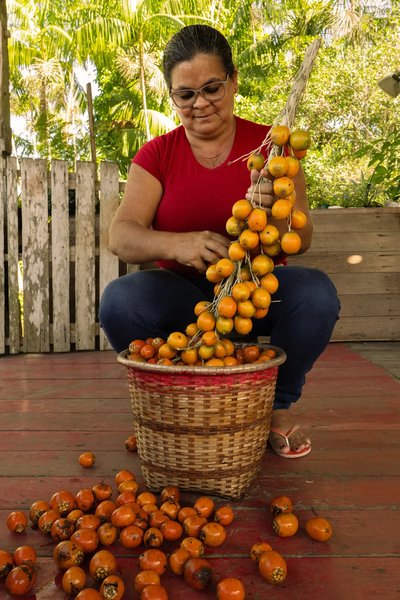
Certified timber, paper fiber, paper and cardboard
In 2024, our Latin American operations used 65,827 tons of timber, paper fiber, paper and cardboard for the manufacture of finished products and in packaging materials. Of this total, 64,135 tons were sourced from materials certified by the Forest Stewardship Council (FSC) and the Programme for the Endorsement of Forest Certification (PEFC), meaning 97.43% of the total volume used. This sum takes into consideration only PEFC and FSC certified materials, meaning it therefore differs from that reported in the Commitment to Life indicator. For the reporting, paper/timber products used for Home & Style, Cartridges, Corrugated Cardboard, Magazines and Printed Materials, and Bags were considered.
the innovation and sustainability actions undertaken with supplier communities in the Climate, Biodiversity and Nature chapter.

